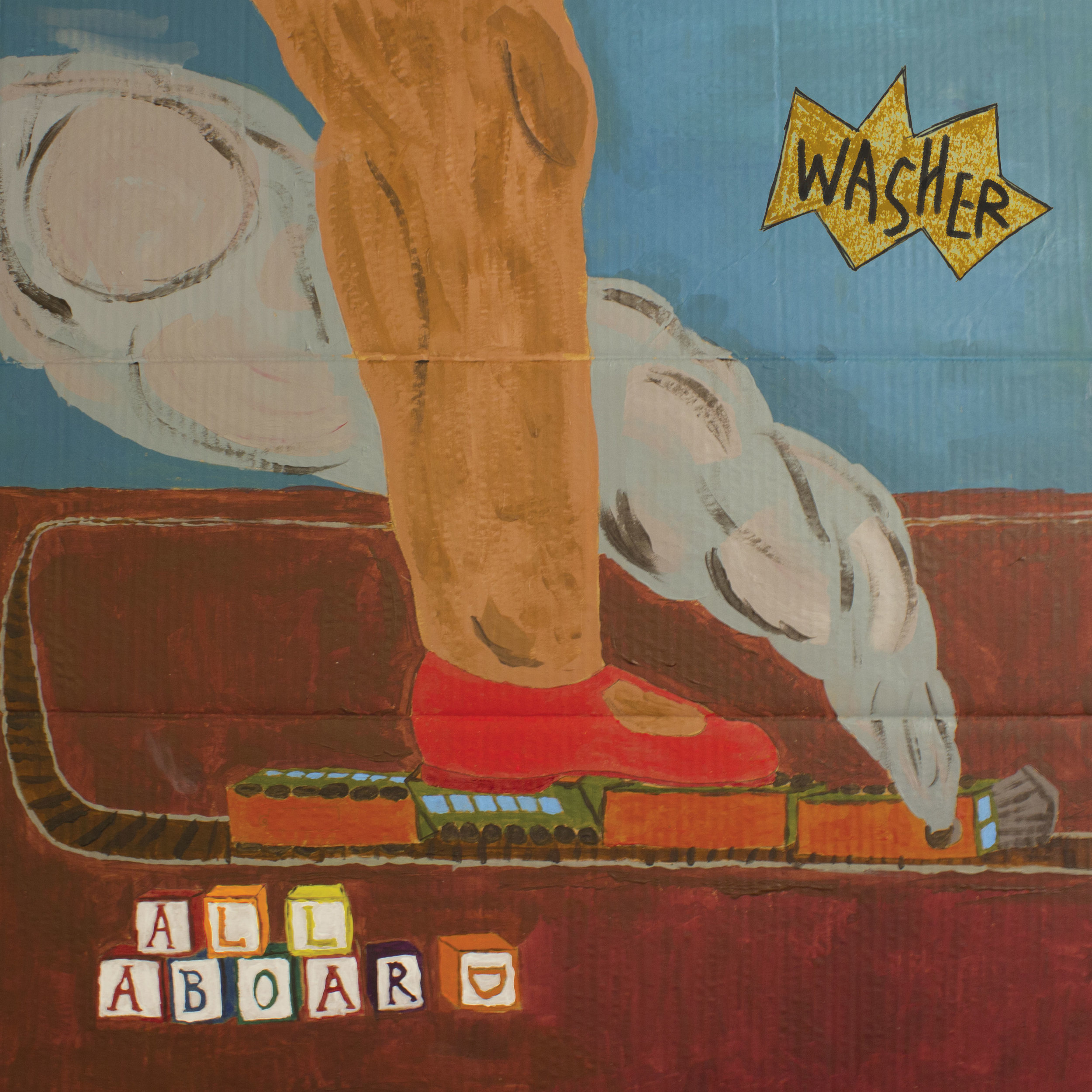by Sean Deveney (@autonomousnloud)
When I first heard Here Comes Washer, the riff for “Eyelids” crawled into my ears and set up camp. Once it was over, I remember thinking there was no way the rest of the album could be as good as that. What followed was probably the most solid album I can think of right now. The riffs and drumming were the epitome of what I was looking for, and the lyrics genuinely got inside my head.
The following lyrics from “Beansy” will always stay with me: “it’s too easy to compare yourself to anyone / and not consider all the factors that / shaped their world that were out of their hands / and circumstance / it’s a lonely road, don’t keep yourself alone / you can look around, don’t have to crack the code / if I’d only known, if I’d only known / it’s not the end result, don’t take the test / say no”
Almost immediately, Washer became incredibly important to me. I rarely connect to lyrics very strongly and am usually just pulled in by the feel of a song, but Washer always gets to me in a personal way. Mike Quigley’s delivery of them also feels effortless and seems to fit perfectly with the actual message or mood of each song.
All Aboard is the follow up to this stunning album and is truly a journey in itself. It begins with “Forget Everything,” which has a dreamy opening but then soon becomes distinctively Washer as Quigley’s vocals kick in with lines like “I’ll be honest probably not what you wanna hear / try to forget everything you felt and you fear”
“Elbow” really gives life to the album as Kieran McShane’s drumming rages on amid Quigley’s controlled screams. More screams surface in “Lyin,” which actually starts off calmly before becoming quite intense. Honestly, I thought I was sick of hearing screaming in music, but Quigley makes it sound raw and true because he only does it when he means it. The tired-sounding vocals that begin the song make a natural transition to the screams. They are screams that have purpose, and you can hear it.
“Dog Go Bark” has a steady and catchy drive to it that is almost anthemic but then has a brief section that is reflective and builds tension. The words “I’ll find a way, got to monetize / my home, my hands, my life / I walked away before / sat down my desk and 2 years turned to 4” are such a vivid description and instantly give me chills. The song then returns to the original drive, but it feels even more powerful and emotional because of the break.
“Afraid To Care” also contains great emotion and a few parts that feel a bit more melodic than you might expect from Washer. The beginning has a frantically catchy approach and some distinctively Washer sections, but the song once again briefly breaks down and has a quiet space to breathe before picking back up again. This tactic of letting the song breathe a bit was not really seen on Here Comes Washer and shows they have grown as musicians and are experimenting more with their sound.
For those who are understandably hoping to find a song as moving and memorable as “Eyelids,” “Your Guess Is As Bad As Mine” immediately comes to mind. There have been days when this song has automatically played in my head for hours. It calms down in the right places and unleashes exactly when it needs to. Like always, Quigley’s lyrics grip my interest immediately: “walk up to the moon and wave goodbye / I wouldn’t even try / when to breathe out? when to lie? / I may retreat inside / but I won’t back down / take a look around / I hold my ear to the ground / take a breath and feel the dirt settle below my lungs”
It’s the honesty of his words that are so appealing. In “Everybody Sounds Fake,” Quigley sings “we get old, we get selfish / everybody sounds fake / and I’m the worst one / we get old, we get on / found a way in my head / to get on” As in the first album, his analyses are sharp, and he often criticizes or examines his own way of thinking. Such honesty makes this an album that does not just sound unbelievably good but also makes it a piece of art that can be of some emotional use to many listeners.
When the lyrics become direct like in “Everybody Sounds Fake” or “Dog Go Bark,” they also become extremely relatable and touch on things that are not often discussed thereby providing a possible source of comfort for many people. Combine that with riffs that will stay with you for days and McShane’s very tight drumming, and you get an album that is well worth the ride.

